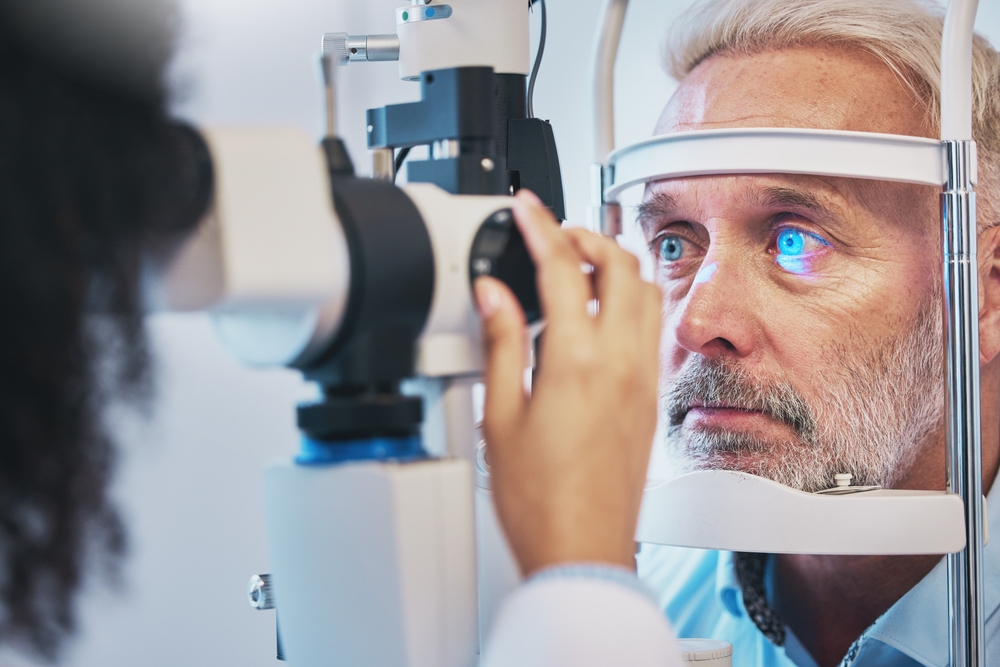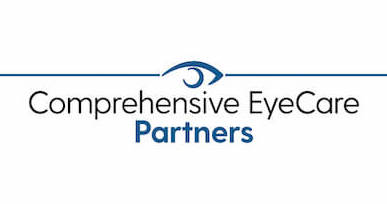
Glaucoma often has no early warning signs, which is why awareness and education about the signs and symptoms, as well as regular eye exams, are so important for early detection and treatment to prevent vision loss.
January has been named Glaucoma Awareness Month to help promote understanding of the risk factors, signs, and symptoms of glaucoma so that people can seek screening and catch glaucoma early when treatment is most effective at halting disease progression and vision loss. Keep reading to learn more about glaucoma, including the most common symptoms!
What is Glaucoma?
Glaucoma occurs when a buildup of pressure inside the eye damages the optic nerve. Specifically, there is an imbalance where eye fluid called aqueous humor is overproduced, or the drainage system doesn’t properly remove excess fluid.
This increase in intraocular pressure causes the optic nerve to be compressed, leading to progressive vision loss. Though anyone can develop glaucoma, those with a family history of the disease and adults over age sixty, especially Hispanics/Latinos, are at increased risk.
That’s why regular eye exams to check for high eye pressure and other glaucoma tests are essential for early intervention, before noticeable vision loss from optic nerve damage occurs. Two important types of glaucoma to know are open-angle glaucoma and angle-closure glaucoma.
Open-angle glaucoma is the most commonly diagnosed type of glaucoma. Less commonly diagnosed types of glaucoma are normal-tension glaucoma, pigmentary glaucoma, and juvenile glaucoma.
What are the Most Common Symptoms of Glaucoma?
While glaucoma develops without symptoms in early stages, leading to extensive and permanent visual field loss, there are important signs of open-angle and angle-closure glaucoma that should prompt an urgent eye exam.
Open-Angle Glaucoma Symptoms
The most common form of glaucoma, open-angle glaucoma, has the following hallmark symptoms as the condition progresses:
- Gradual loss of peripheral or side vision resulting in tunnel vision
- Blurry vision
- The appearance of halos around lights
- Seeing reddish colors as lacking brightness
Angle-Closure Glaucoma Symptoms
The symptoms of angle-closure glaucoma, which causes a rapid spike in eye pressure, include:
- Eye pain and redness
- Intense headaches
- Nausea and vomiting
- Blurred vision
- Halos around bright lights
- Acute episodes of sudden vision loss
Both open-angle and angle-closure glaucoma lead to irreversible damage of the optic nerve if pressure on it remains too high for too long. Recognizing symptoms early on and seeking immediate treatment is essential to halt further vision loss.
Being aware of signs like tunneling of side vision or eye pain with headaches can help diagnose glaucoma before central vision becomes impacted.
Who is Most at Risk for Developing Glaucoma?
While anyone can develop glaucoma, certain factors increase the likelihood that you might develop this eye condition. These factors include:
- Age
- Ethnicity
- A family history of glaucoma
- Uncontrolled high blood pressure
- Long-term corticosteroid use
- A previous eye injury or surgery
If any of these factors apply to you, you may be at an increased risk of developing glaucoma and should schedule more frequent comprehensive eye exams to monitor your eye pressure levels.
What are the Treatments for Glaucoma?
The goal of all glaucoma treatment options is to lower pressure within the eye and minimize damage to the optic nerve. Glaucoma specialists can offer treatment options, including prescription eye drops, oral medications, surgery, or a combination of two or more of these options.
Early diagnosis is key to successful glaucoma treatment. When glaucoma is caught in its earliest stages, treatments are more likely to be effective at preserving the quality and clarity of your vision.
While you can’t prevent glaucoma, you can protect the quality of your vision by prioritizing eye health. Knowing your risks and scheduling regular comprehensive eye exams with an experienced eye care provider like Shepherd Eye Center can prevent glaucoma from silently stealing your sight.
Are you experiencing vision changes? Schedule an appointment at Shepherd Eye Center at one of our 5 locations in Las Vegas or Henderson, NV, today!


